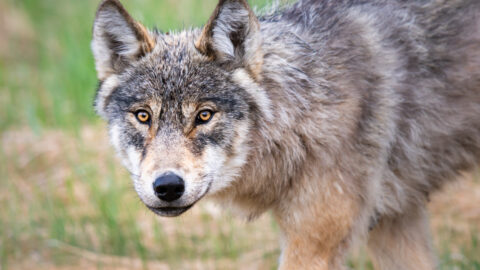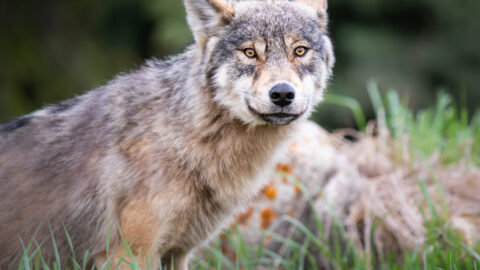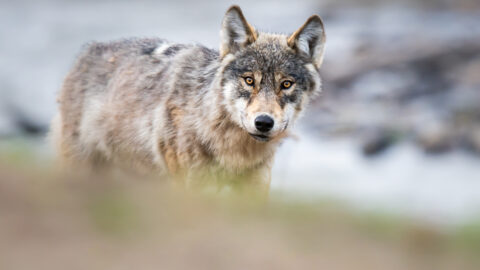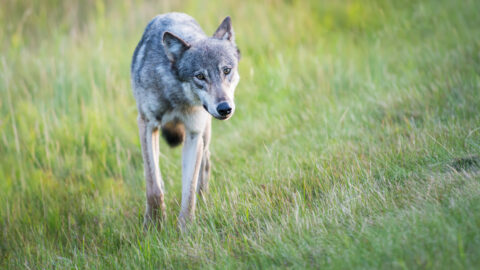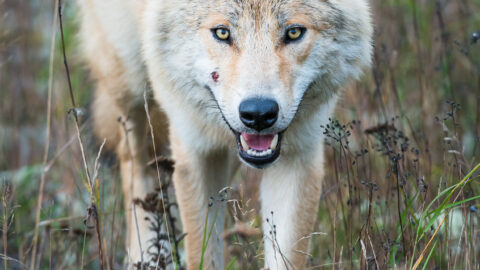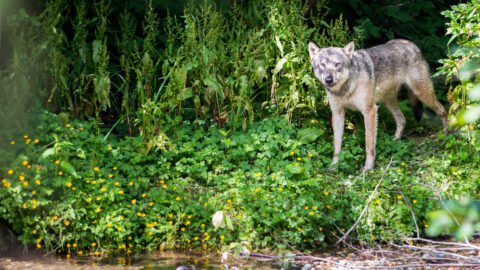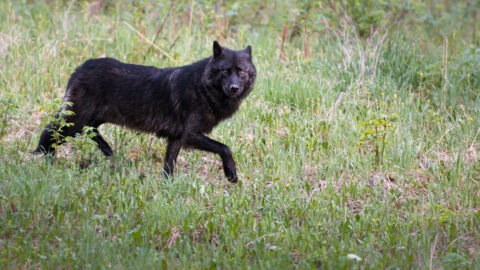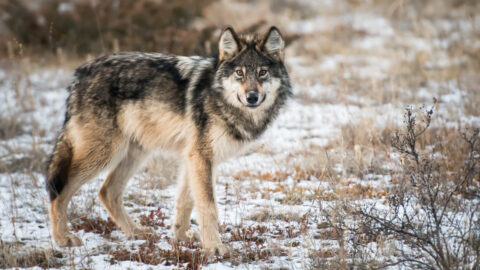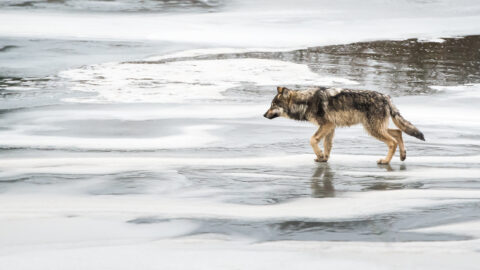Your Turn
Chapter Six
It’s true that the challenges we face in our world, in our country, in our communities – the challenges we face to balance the needs of people and nature – are numerous and the answers are far from obvious.
But there are answers.
And maybe your ideas will change the world. Or maybe they’ll push and prod how we think of our world. Or maybe they’ll help us rethink what we need to do for our world. No matter.
Why?
Because the simple act of trying is what actually matters. Just ask Story Warren.
“My age didn’t limit what I could accomplish. I saw that being young wouldn’t dampen my voice, it would make my voice louder. More people would listen to other people my age, to the younger generation.”
That was the genesis that sparked Story’s story. At the age of 13, Story launched Kids4Wolves in the hopes of creating better decisions for wolves and the people who live with them.
“I saw the opportunity to get out there and try to educate people and try to reverse misinformation and show that young people could get involved in the decision-making process for wolves.”
She succeeded. Because of Story, tens of thousands of young voices found their voice and became involved in the debate surrounding the fate of wolves in ecosystems near and far.
“Starting with young people was a way to generationally improve the public’s view of wolves. Young people would tell each other – tell their families, tell their parents – that wolves are a species that deserve to have a place in the ecosystem and deserve not to be hated. A lot of adults, I felt, had lost sight of that. And, so, we had a particular niche to have our voices heard about preserving species.”
For her efforts, Story received numerous accolades and awards, including from the US President. But despite her success, Story began to realize her efforts weren’t doing enough to address the root of the issue.
“People who are on the ground, living with wolves, are the people who tend to have these fears about wolves and tend to not want them around. So, it’s great to get a big group of people who love wolves and care about wolves. But to help the wolves themselves? I feel that it’s important to reach out to the communities that actually live with wolves, because if they have a little bit more tolerance for wolves, that helps the wolves directly.”
In other words, Story took her passion for wolves and tried to make a difference for the issue she cared about, but she never stopped thinking critically.
She kept asking the better question and found ways to think more creatively about how she could make bigger change – more thoughtful and long-lasting change.
“Wolves are cool animals. They cause problems. (We need to) listen to everybody’s opinions on that and what the (communities who live with wolves) need in order to coexist with wolves on the ground.”
That idea is ultimately why Story shifted her message and her organization: No longer did she seek to just engage youth voices in an issue she cared about.
Story sought to build bridges across a divisive issue and foster understanding, conversation and tolerance – with wolves and between communities.
“Definitely there are extremes on both sides that don’t want to listen to anybody. Whenever someone who came in believing something else about wolves to my site, even if they started with an attack on me, I would do my best to ask them about their background.”
Story continues, “I’d ask them what their experiences with wolves have been. A lot of times I would learn something because they had a bad experience with wolves. I would do my best to respectfully provide the information I had.”
That effort led to Story’s biggest impact.
“Those individual conversations that I had with commenters – even if they came in sometimes telling me to kill myself because I love wolves – I would just do my best to de-escalate the situation and then learn about their experiences and have a civil conversation. Those individuals that I could actually break down the wall for a few minutes and actually have a conversation with them? As small as it seems, that is when I felt best about Kids4Wolves. And that’s when I felt that there was some hope, on one-on-one level, to try to bridge this divide.”
Story believes she was able to have that impact because of her age.
“Adults paid more attention to me because I was so young. They didn’t expect such a loud voice or such an informed voice to speak out about these issues. So, they paid more attention to me because I was kid – because I wasn’t just another adult shouting in the room.”
We’re often told that doing good opens doors – and it can and it does, Story adds.
“I’ve gotten opportunities from it.”
But there is another reality too. Not all youth-driven initiatives are greeted with the same level of enthusiasm and we need to be honest about that, argues Story.
“I’ve gotten suspicion from Kids4Wolves as well. I’ve yet to see where it really takes me in the end.”
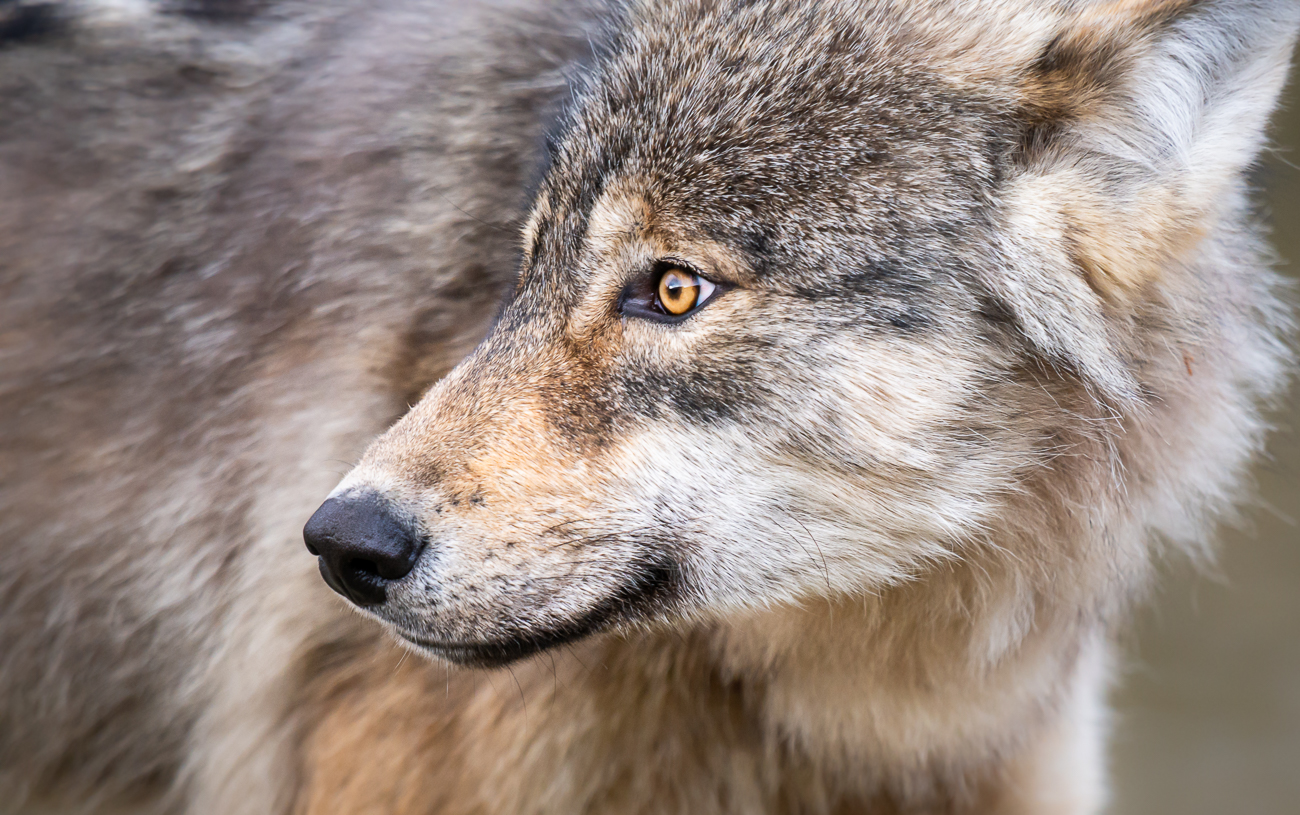
And whether you agree with Story’s work or her message, we should all wish her success. After all, when someone tries to better our world, even if imperfectly, we should be tolerant and understanding that mistakes will happen and lessons will be learned.
“When I was really young, I thought of the world as black and white. I thought that people who didn’t like wolves were bad people. That’s just what I thought. And as I learned more and actually met people, that’s not the case at all. We have a lot more in common than we don’t.”
And yet so often change-making is set up in black and white terms. If we’re not part of a team – a larger coalition of organizations and citizens debating an issue in us-versus-them, zero-sum terms – we increasingly find ourselves on our own and under attack.
Within this reality, we don’t allow for growth and learning. We don’t allow for solution-makers to try, fail, and try again; we don’t allow for solution-creators to advance ideas that can unite society, rather than divide.
That must change, Story argues.
“We need to have an open mind at all times. It’s the first step. We like to be offended by things; offended by people’s mistakes. I think we need empathy all the time. Just think, what if I was in that person’s shoes and I made this mistake?”
It’s why, in many ways, we don’t just need to advance new ideas to solve old and growing problems, we also need to change how we do that.
We need to create a society that encourages trying and accepts mistakes and values thoughtfulness. And though that might seem like one challenge too many – one more step in an already long process to bring forward a better balance – Story says like change itself, it’s easier than we think.
It’s simply a matter of trying to do better in all that we do.
“Just be pragmatic and understand the nuances. Once in a while, just as a thought exercise, assume that you’re wrong about something and learn what the other perspectives are. And then you can be really solid in your foundation and in your faith in your own opinions, while having actual (research-based) support, not just following the crowd.”
Story’s right. We need to do that. We need to strive to be better citizens, just as we need to strive to be better stewards.
After all, as Story says, “we’re all constituents of someone. We elect the people who appoint the people who make every decision.”
In other words, a better tomorrow is not on someone else to create. It’s for us to imagine, design and make so.
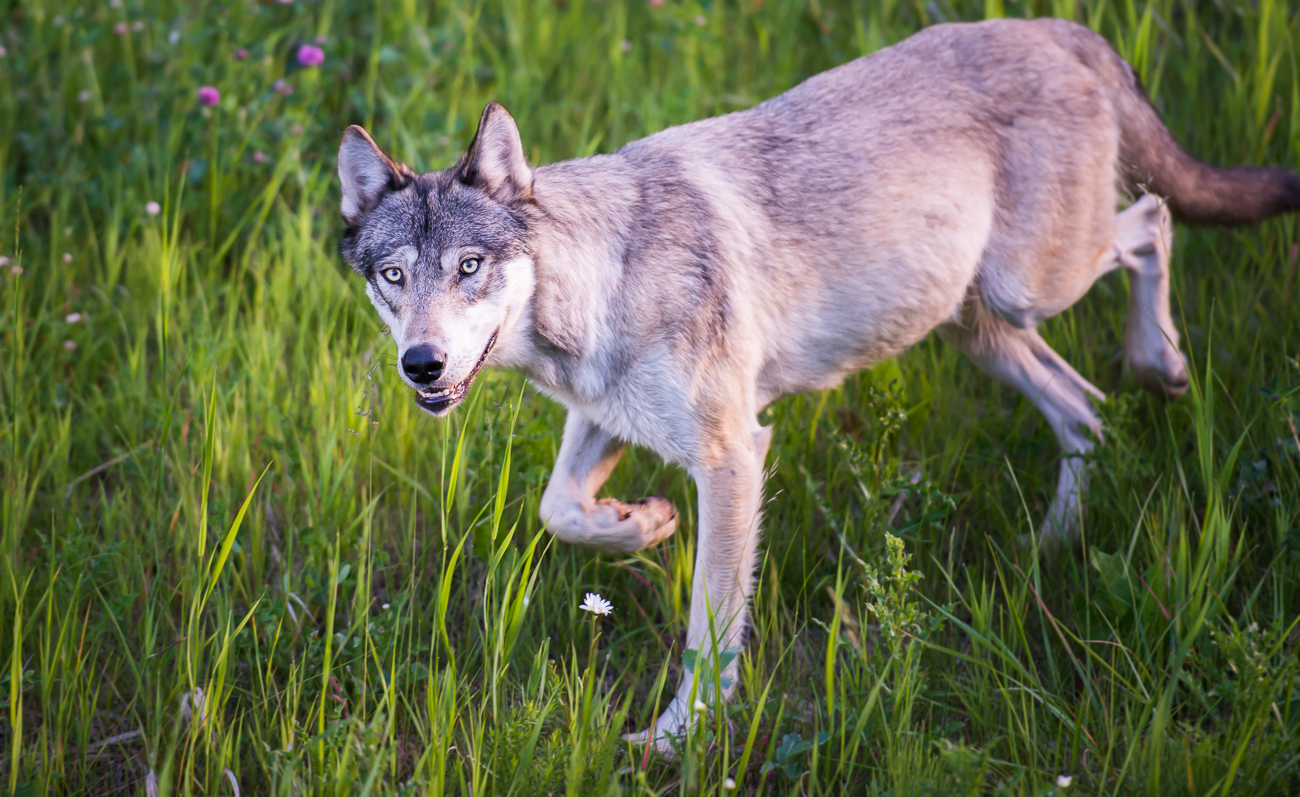
“Every big movement has taken a long time – a really long time. So, even if you’re taking some steps back, those steps forward, after a really long time, make a difference. Even if it doesn’t seem like you’re making a difference because of some insult you get or something that happened, (remember) it’s the long term, really, that matters.”
Looking back on her journey, Story tells us “I’m proud of what I accomplished. But when I was younger, I do think that I would have been more thorough in terms of what sort of things I supported as a young activist.
“I think there were definitely times when I was just caught up in having the followers and being the young activist. I do regret that because there were some policies that I supported without knowing the nuance of those policies – without looking into the actual issues and what actually would help the rural communities and the wolves. I just sort of follow the crowd. And that I do regret.”
Story adds, “I would definitely read more into the straight science about wolves and get as much background as I could without just sort of reflexively supporting certain things. I would look past what the big groups are supporting because sometimes the big groups’ agendas aren’t what’s best for the animal.
“I would have met people sooner that have different views, heard more perspectives. I mean, obviously, I was young, so there was only so much I can do.”
Exactly.
Story was young. She made mistakes. She would do things differently if she could. Her successes weren’t as perfect as they could have been – as perfect as she wishes they were.
And yet? And yet?
In an important, complex and polarizing issue, Story tried to make a difference. And she did.
In ways big and small, Story has bettered our world for people and nature because she tried.

“We’ve made the planet this way and we need the youth to support us in making it a better place.” – Elliott Ingles | Area Supervisor, Mount Robson Provincial Park
“But they’ve got to get involved. And they can’t just sit back and say well, we can’t do anything.” – Ian Waddell | Former Cabinet Minister
“I don’t want to hear somebody complaining if they haven’t voted, at the very least, or they haven’t got involved and done something to better the situation. (If they haven’t done that) I’m not interested in listening to them.” – Donn Lovett | Political Organizer
“That’s why it’s always good for young people who do care, and who do want to make sure that a long-term perspective is kept in mind, get involved.” – Sam Sullivan | Former Mayor of Vancouver
“The youth of today, they do have a responsibility to speak up as much as anybody else.” – Josh Hall | Rural Journalist
“It’s so important for them to step to the front and to forget the fears of their parents. And just be bold about it.” – Joe Urie | Indigenous Tourism Advocate
“And we need the smartest minds and the energy of the population and particularly young people to be thinking about solutions to these things.” – Sean Mullin | Economist
“And it’s this generation, I truly believe, that will eventually make a difference. If there’s anybody that’s going to bring two sides to the table and eventually get a compromise, it is today’s generation. And I’ve met a lot of really intelligent, well-spoken young people – they are going to be the ones to make change.” – Josh Hall | Rural Journalist
“The misconception that society has about young people in general is that their brains aren’t fully mature and, as a result, they have nothing to offer. Young people have unique abilities while they’re young that society needs.” – Ilona Dougherty | Youth Researcher & Advocate
“This is the smartest generation, the new generation, in human history.” – Ian Waddell | Former Cabinet Minister
“I think young people are smarter today than we were. I think they’re better equipped. And I think that there’s a world of conversations that are happening that will allow not just the usual suspects to be the ones leading movements. That I’m really excited about.” – Salimah Ebrahim | Journalist & Entrepreneur
“And they are much more aware of the planet and how humans are affecting the planet than I was growing up. Because there are so many more stories about it, right? Because it is the subject of films and documentaries and news stories. So, there’s just much more information about it.” – Dawna Friesen | TV News Anchor
“Kids offer a very valuable perspective of things and a sort of hope for the future that a lot of adults don’t have. So, I think that it’s important that youth make their voices heard.” – Miranda Andersen | Youth Leader & Filmmaker
“Young people will tackle the impossible if they’re just given the opportunity.” – Ilona Dougherty | Youth Researcher & Advocate
“I recognize that there is so much knowledge that I lack and that I will do a much better job if I’m successful at engaging some younger voices to advise me on how to handle some of the things that we’re talking about right now.” – Hon. Janet Austin | Former BC Lieutenant Governor
“These are the people that are most important. It’s their world. It’s going to be their world.” – Joe Urie | Indigenous Tourism Advocate
“Our most influential and impactful ideas will come from young people today who are growing up in this world. They understand this sort of new world intuitively, and intuitively understand both the upsides and the downsides to it. And, so, the artists in each of them can turn that kaleidoscope on how they view the world to shape our systems and structures. Because that’s where the solutions are going to arise. They won’t arise from you or I.” – Dr. Aleem Bharwani | Cumming School of Medicine
“Age doesn’t matter. It doesn’t matter if people are out in small rural communities or in the city.” – Randall Howard | Angel Investor
“At any age you can come up with new ideas, you can study them you can develop them.” – Larissa Vingilis-Jaremko
“Young people’s new ideas are what moves society forward.” – Ilona Dougherty | Youth Researcher & Advocate
“And when was the last time we really had the revolution driven by people my age? I mean, come on!” – Ian Bird | Philanthropist & Coach
“The power is totally in the hands of kids. Even though kids don’t have the most money, they have the power of persuasion and the power of action.” Randall Howard | Angel Investor
“I think that starting at such a young age, really worked to my advantage. It got me noticed because, you know, I made my first film when I was nine-years-old and I don’t think a lot of kids do that. I think that it’s only captivated people.” – Miranda Andersen | Youth Leader & Filmmaker
“I think that’s one of the powers that young people have is that when you get up and, if you can, speak to a group, you’re going to see hearts and minds change right there. Because a young person has come to talk.” – Barbara Cartwright | Welfare Advocate
“You matter. Your opinion matters. Your voice matters. Don’t ever think that, ‘Oh, well, I’m not going to get involved in this because I’m just I’m just a nobody’. Everybody is somebody and the more people who go out and have that voice and say this is important to me? You might be one person, but you’re going to be one of 1000 or 100,000. You matter.” – Stephanie Leonard | Caribou Patrol
